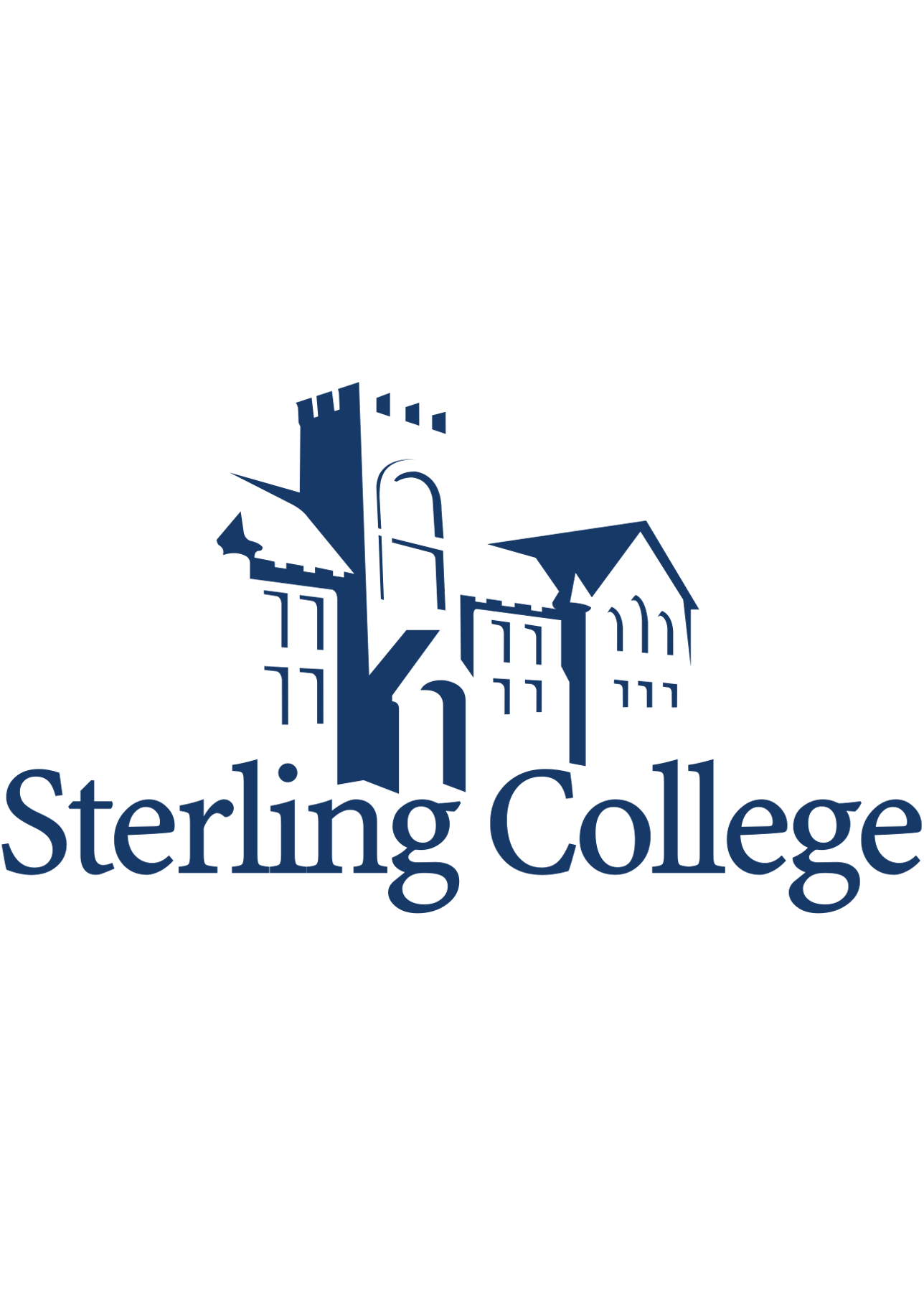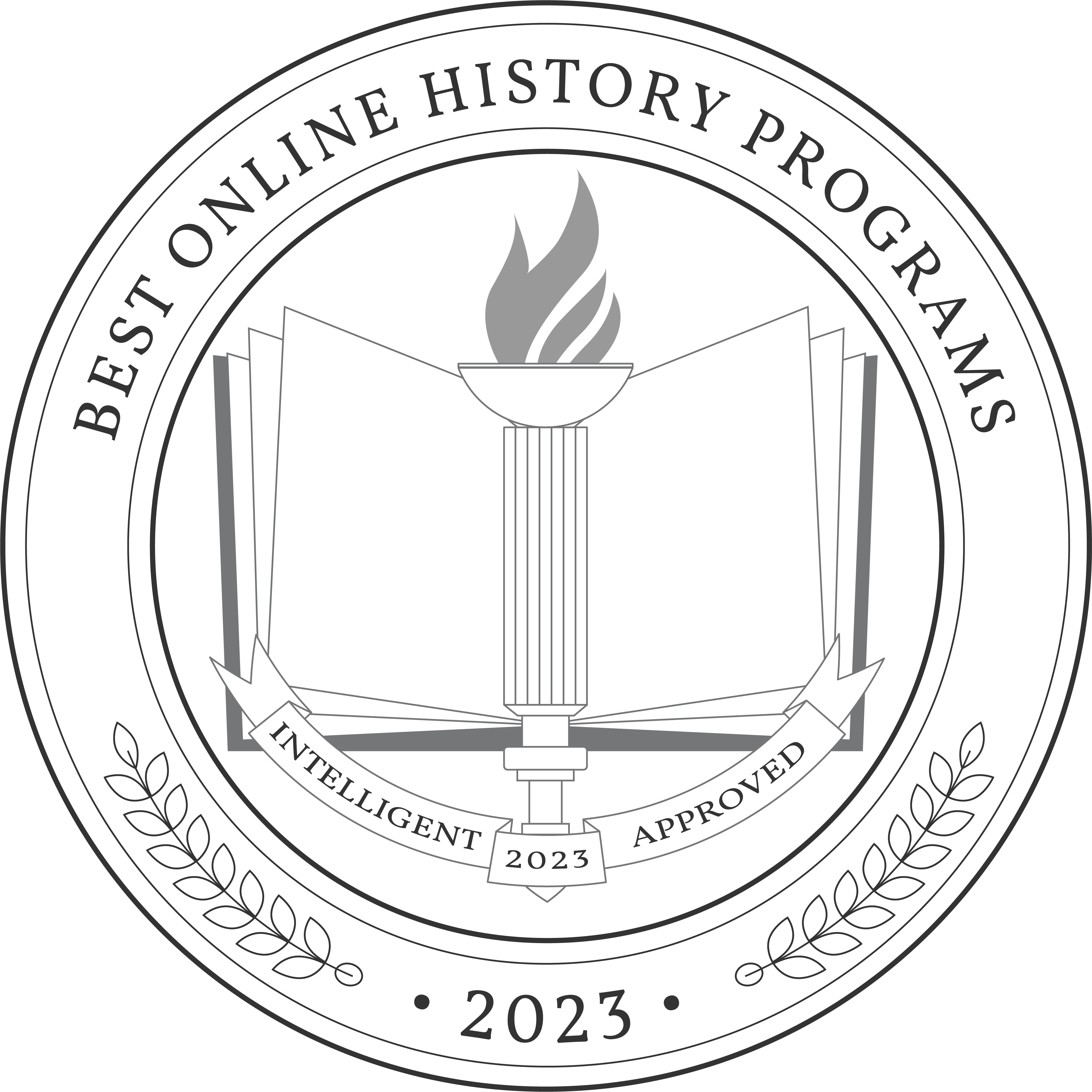Why This Matters
-
CHOOSE FROM MORE THAN A DOZEN CAREER PATHS
History is a very versatile major. Individuals who pursue degrees in history can go on to be archivists, curators, researchers, teachers, writers, lawyers, politicians, and more.
-
DEMAND FOR ARCHIVISTS TO RISE 9% BY 2028
As organizations have an increasing volume of information to manage and digitize, new opportunities for archivists are expected to open up at a faster-than-average pace.
-
EARN $14,270 MORE PER YEAR WITH A MASTER’S
Teaching is another popular career path for history majors. Those with an advanced degree can teach at the college level and earn an annual median wage of $74,590.
Our Research
Bachelor’s and master’s degrees are the most common types of degrees in history, although some schools offer an associate’s degree in history. As history is a humanities field, most programs award a Bachelor of Arts or Master of Arts in history. For this list, we reviewed associate’s, bachelor’s, and master’s degree programs.
All of the programs on our list are delivered completely online. We only included programs that are offered by regionally accredited schools, meaning that they meet high standards of quality for higher education. Coursework and degrees from regionally accredited institutions are more widely recognized and accepted by other schools and employers.
We evaluated each program based on reputation, faculty, course strength, cost, and flexibility. Then we calculated an Intelligent Score for each program on a scale of 0 to 100. For a more extensive explanation, check out Our Ranking Methodology.
- 55 hours to write this article
- 118 universities and colleges we assessed
- 271 education programs we compared
The Top 63 Online History Degree Programs
Institution Type
Status
- Intelligent Score
- Alphabetically By University Name
- Acceptance Rate
- Enrollment
- In-state Graduate Tuition
- Out-of-state Graduate Tuition
- In-state Undergraduate Tuition
- Out-of-state Undergraduate Tuition

University of Wisconsin-Milwaukee
Intelligent Score: 99.67Undergraduate Tuition
In-state: $9,273
Out-of-state: $37,161
Graduate Tuition
In-state: $10,728
Out-of-state: $10,728
Test scores
SAT: 1260-1460
ACT: 27-32
ESTIMATED COST PER CREDIT
$902.52 per credit
DELIVERY FORMAT
Online
ACCREDITATION
Higher Learning Commission
REQUIRED CREDITS TO GRADUATE
120 credits

Southwestern Assemblies of God University
Intelligent Score: 99.44Undergraduate Tuition
In-state: $20,496
Out-of-state: $20,496
Graduate Tuition
In-state: $10,710
Out-of-state: $10,710
Test scores
SAT: 900-1120
ACT: 16-22
ESTIMATED COST PER CREDIT
$350 per credit
DELIVERY FORMAT
Online
ACCREDITATION
Southern Association of Colleges and Schools Commission on Colleges
REQUIRED CREDITS TO GRADUATE
30-33 credits

Florida International University
Intelligent Score: 98.21Undergraduate Tuition
In-state: $4,721
Out-of-state: $16,529
Graduate Tuition
In-state: $8,912
Out-of-state: $8,912
Test scores
SAT: 1110-1260
ACT: 23-29
ESTIMATED COST PER CREDIT
In-State: $228.81 per credit
Out-of-State: $345.87 per credit
DELIVERY FORMAT
Online
ACCREDITATION
Southern Association of Colleges and Schools Commission on Colleges
REQUIRED CREDITS TO GRADUATE
120 credits

University of Louisiana Monroe
Intelligent Score: 97.15Undergraduate Tuition
In-state: $5,407
Out-of-state: $19,135
Graduate Tuition
In-state: $5,511
Out-of-state: $5,511
Test scores
SAT: 1000-1210
ACT: 20-26
ESTIMATED COST PER CREDIT
$400 per credit
DELIVERY FORMAT
Online
ACCREDITATION
Southern Association of Colleges and Schools Commission on Colleges
REQUIRED CREDITS TO GRADUATE
120 credits

Fort Hays State University
Intelligent Score: 96.89Undergraduate Tuition
In-state: $4,140
Out-of-state: $14,580
Graduate Tuition
In-state: $3,726
Out-of-state: $3,726
Test scores
SAT: N/A
ACT: N/A
ESTIMATED COST PER CREDIT
$287.75 per credit
DELIVERY FORMAT
Online
ACCREDITATION
Higher Learning Commission
REQUIRED CREDITS TO GRADUATE
33 credits

Sam Houston State University
Intelligent Score: 96.81Undergraduate Tuition
In-state: $5,856
Out-of-state: $15,672
Graduate Tuition
In-state: $5,765
Out-of-state: $5,765
Test scores
SAT: 970-1120
ACT: 18-23
ESTIMATED COST PER CREDIT
$423.50 per credit
DELIVERY FORMAT
Online
ACCREDITATION
Southern Association of Colleges and Schools
REQUIRED CREDITS TO GRADUATE
120 credits

Western Kentucky University
Intelligent Score: 96.48Undergraduate Tuition
In-state: $10,802
Out-of-state: $26,496
Graduate Tuition
In-state: $12,140
Out-of-state: $12,140
Test scores
SAT: 980-1180
ACT: 19-26
ESTIMATED COST PER CREDIT
$707 per credit
DELIVERY FORMAT
Online
ACCREDITATION
Southern Association of Colleges and Schools Commission on Colleges
REQUIRED CREDITS TO GRADUATE
36 credits

Slippery Rock University
Intelligent Score: 96.16Undergraduate Tuition
In-state: $7,716
Out-of-state: $11,574
Graduate Tuition
In-state: $9,288
Out-of-state: $9,288
Test scores
SAT: 980-1150
ACT: 19-25
ESTIMATED COST PER CREDIT
In-state: $516 per credit
Out-of-state: $774 per credit
DELIVERY FORMAT
Online
ACCREDITATION
Middle States Commission on Higher Education
REQUIRED CREDITS TO GRADUATE
30 credits

Nicholls State University
Intelligent Score: 95.18Undergraduate Tuition
In-state: $4,922
Out-of-state: $6,015
Graduate Tuition
In-state: $5,686
Out-of-state: $5,686
Test scores
SAT: 990-1170
ACT: 19-24
ESTIMATED COST PER CREDIT
$275 per credit
DELIVERY FORMAT
Online
ACCREDITATION
Southern Association of Colleges and Schools
REQUIRED CREDITS TO GRADUATE
120 credits

West Texas A&M University
Intelligent Score: 94.75Undergraduate Tuition
In-state: $5,748
Out-of-state: $7,195
Graduate Tuition
In-state: $4,968
Out-of-state: $4,968
Test scores
SAT: 920-1130
ACT: 18-23
ESTIMATED COST PER CREDIT
$465 per credit
DELIVERY FORMAT
Online
ACCREDITATION
Southern Association of Colleges and Schools Commission on Colleges
REQUIRED CREDITS TO GRADUATE
120 credits

Holy Apostles College and Seminary
Intelligent Score: 94.59Undergraduate Tuition
In-state: $25,600
Out-of-state: $25,600
Graduate Tuition
In-state: $18,433
Out-of-state: $18,433
Test scores
SAT: 1070
ACT: 24
ESTIMATED COST PER CREDIT
$360 per credit
DELIVERY FORMAT
Online
ACCREDITATION
New England Commission of Higher Education, Inc.
REQUIRED CREDITS TO GRADUATE
120 credits

Sterling College
Intelligent Score: 93.92Undergraduate Tuition
In-state: $26,000
Out-of-state: $26,000
Graduate Tuition
In-state: $13,860
Out-of-state: $13,860
Test scores
SAT: 900-1080
ACT: 18-25
ESTIMATED COST PER CREDIT
$145 per credit
DELIVERY FORMAT
Online
ACCREDITATION
Higher Learning Commission
REQUIRED CREDITS TO GRADUATE
45 credits

The Baptist College Of Florida
Intelligent Score: 93.4Undergraduate Tuition
In-state: $21,232
Out-of-state: $21,232
Graduate Tuition
In-state: $14,850
Out-of-state: $14,850
Test scores
SAT: 930-1200
ACT: 17-23
ESTIMATED COST PER CREDIT
$360 per credit
DELIVERY FORMAT
Online
ACCREDITATION
Southern Association of Colleges and Schools Commission on Colleges
REQUIRED CREDITS TO GRADUATE
120 credits

Drury University
Intelligent Score: 93.39Undergraduate Tuition
In-state: $29,900
Out-of-state: $29,900
Graduate Tuition
In-state: $8,388
Out-of-state: $8,388
Test scores
SAT: 1030-1250
ACT: 21-29
ESTIMATED COST PER CREDIT
$320 per credit
DELIVERY FORMAT
Online
ACCREDITATION
Higher Learning Commission
REQUIRED CREDITS TO GRADUATE
124 credits

Eastern Oregon University
Intelligent Score: 92.79Undergraduate Tuition
In-state: $7,830
Out-of-state: $20,520
Graduate Tuition
In-state: $17,550
Out-of-state: $17,550
Test scores
SAT: N/A
ACT: N/A
ESTIMATED COST PER CREDIT
$252 per credit
DELIVERY FORMAT
Online
ACCREDITATION
Northwest Commission on Colleges and Universities
REQUIRED CREDITS TO GRADUATE
180 credits

University of Maryland Global Campus
Intelligent Score: 92.28Undergraduate Tuition
In-state: $8,824
Out-of-state: $34,936
Graduate Tuition
In-state: $13,158
Out-of-state: $13,158
Test scores
SAT: 1270-1480
ACT: 30-34
ESTIMATED COST PER CREDIT
$399.50 per credit
DELIVERY FORMAT
Online, Hybrid
ACCREDITATION
Middle States Commission on Higher Education
REQUIRED CREDITS TO GRADUATE
120 credits

West Virginia University
Intelligent Score: 91.92Undergraduate Tuition
In-state: $8,976
Out-of-state: $25,320
Graduate Tuition
In-state: $10,134
Out-of-state: $10,134
Test scores
SAT: 1030-1230
ACT: 21-27
ESTIMATED COST PER CREDIT
$482 per credit
DELIVERY FORMAT
Online
ACCREDITATION
Higher Learning Commission
REQUIRED CREDITS TO GRADUATE
15 credits

University of Central Florida
Intelligent Score: 91.43Undergraduate Tuition
In-state: $4,478
Out-of-state: $19,810
Graduate Tuition
In-state: $6,916
Out-of-state: $6,916
Test scores
SAT: 1160-1340
ACT: 25-30
ESTIMATED COST PER CREDIT
$281.53 per credit
DELIVERY FORMAT
Online
ACCREDITATION
Southern Association of Colleges and Schools Commission on Colleges
REQUIRED CREDITS TO GRADUATE
120 credits
What You Should Know About This Degree
While some individuals with history degrees go on to work as historians for museums, research organizations, or the government, there are actually multiple career paths available to those who study history. Without a specifically defined career path, history majors must be creative in their approaches to their career and look at interdisciplinary job opportunities that incorporate historical research and analysis skills.
Because a history degree program teaches a broad range of transferable skills including writing, critical-thinking, research, and problem-solving, employers in a variety of fields seek out history majors as job candidates. These fields include education, law, communications, journalism, government, and more.
When exploring online programs, it’s important to confirm that the institution is authorized to grant degrees to students in the state where you reside. Check with the National Council of State Authorization of Reciprocity Agreements for more information about authorizations for distance education providers. The school may also provide information about its authorization for granting degrees to out-of-state students.
Even when programs are advertised as online, they may have minimal in-person requirements for internships, residencies, or other hands-on learning experiences. Review the program’s curriculum carefully to confirm if there are any in-person obligations, and decide if they will fit into your schedule and lifestyle.
What’s Next?
Here are some questions to ask when researching Online History programs:
- Does this program offer the specialization I want? Many bachelor’s and master’s degree programs in history give students the option to focus on the history of a particular geographic region or time period. Specializations can include Middle Eastern history, Eurpoean history, or military history. If you are interested in focusing on a particular area, check if the program offers that option.
- Does the program have a thesis option? This is a consideration for master’s level students. If you plan to continue on to earn a doctoral degree in history, completing a thesis as part of your master’s degree may be advantageous or even necessary. As a prerequisite for admission to some doctoral programs, you may need to submit an academic writing sample like a thesis. Keep this in mind when selecting and completing a master’s degree.
During the research process, review the program’s admissions requirements and deadlines so that you are prepared for the application process. You can find this information on the program’s website or by contacting their admissions department directly.
Financing your education is another important consideration. Research scholarships, assistantships, loans, and payment plans.
